Post
A catch
Save a catch to start your fishing logbook. You will be able to to share it with the community if yo want!
A fishing trip
Post an ad to go fishing with other fishermen
Save a catch to start your fishing logbook. You will be able to to share it with the community if yo want!
Post an ad to go fishing with other fishermen
Share a thought, a question with the community
My favorite cities
×Join our 1299 fishermen and our 9 cofishermen in Docklands in Greater London. The fishing forecast is currently 4.6. The most caught fishes here are the spined stickleback , brown trout, the dace fish and the bullhead fish. Come try the most famous fishing techniques like the trap fishing for lobster, cast fishing on the edge for mackerel, angling - using natural bait or cast fishing with dough.
Our fishing forecast of Docklands indicates the best time to go fishing in this city.
The Spined Stickleback
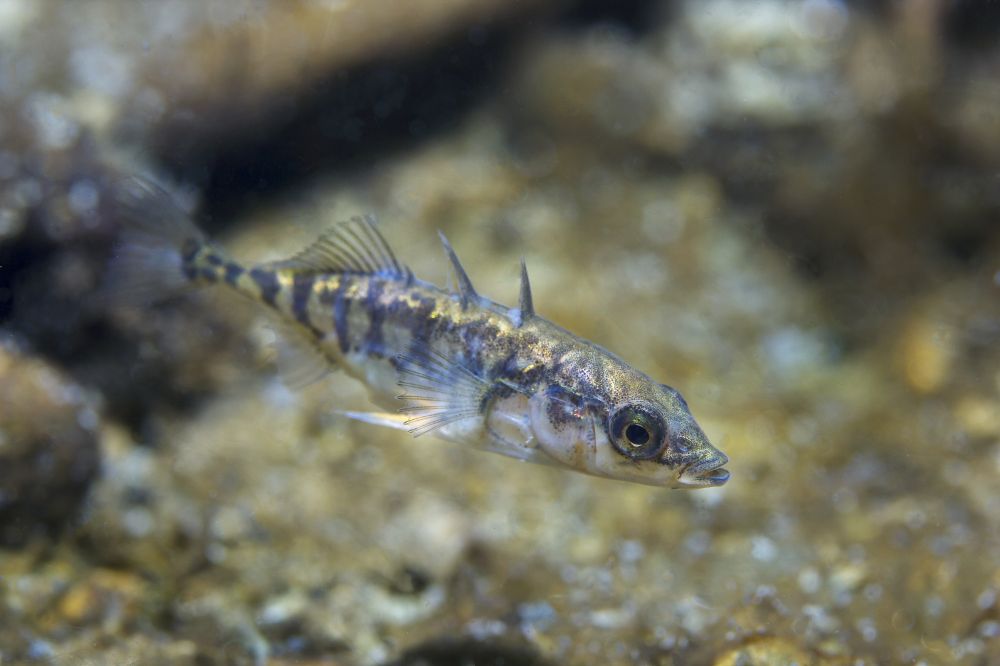
The Spined Stickleback belongs to the Gasterosteidae family. Females are larger than males, measuring 4 to 5 cm and males 3.5 to 4 cm. Its longevity varies from 3 to 5 years. The spined stickleback breeds from March to July to June depending on the region. Fertility is 100 to 400 eggs. It can be fished all year round. The spined stickleback is a small fish whose body is elongated and laterally compressed. Along the lateral line, the body is not covered with scales but with bone plates (badges). The caudal peduncle is very narrow. Three isolated spines are present on the back in front of the dorsal fin. The muzzle is pointed and has a terminal mouth. Pelvic fins are also replaced by two thorns. Its back is greenish brown with black on the back, the sides are silvery grey below the lateral line and the ventral side is whitish. The male's silvery coat turns a bright red color at the time of reproduction.
The Spined Stickleback is a famous fish you can catch in Docklands.Brown Trout
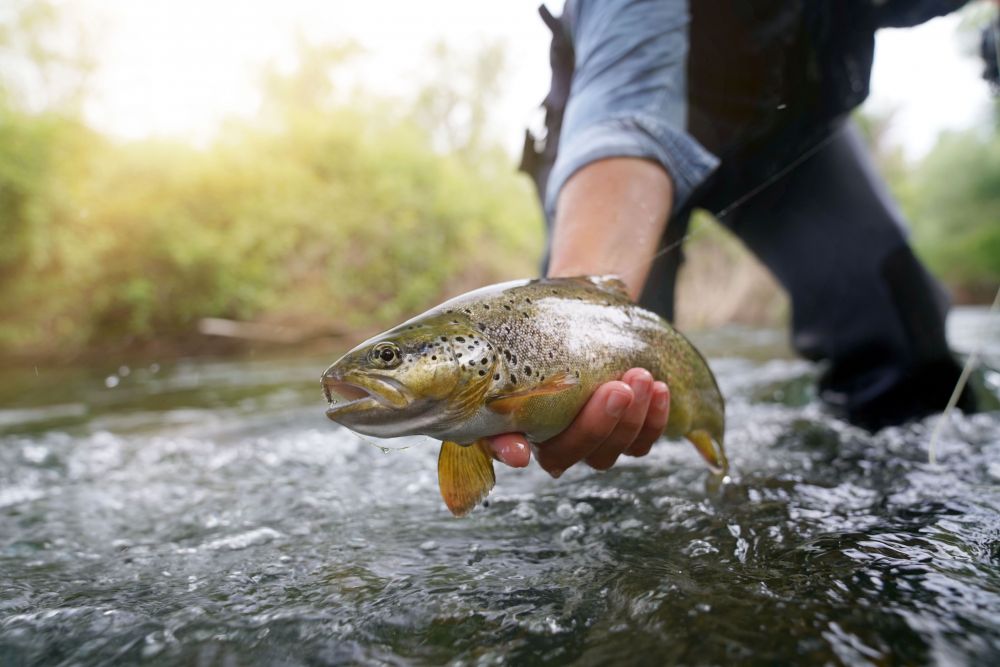
The Brown Trout belongs to the Salmonidae family. According to the location, the adult size varies from 25 cm to 80 cm for 300 to 800 g. It lives for 3 to 6 years. The spawning period starts in October and end in January. The female can lay up to 4000 eggs. The fishing period is open from the second Saturday of March until the third Sunday of September. This fish is not hard to catch but the fishing needs complex skills. Depending on its environment, the brown trout have a very variable color, but the brown trout, as its name shows, is rather brown with scattered black and red spots, depending on the spawners. It has a certain mimicry according to the bottom of its living spaces since the dominant brown will become a green dress if it lives close to the banks where yellow and even sometimes silvery white will mix. It has a "useless" adipose fin between the dorsal fin and the caudal fin. The head is tapered, strong and has a powerful jaw. Its back is a pretty black or night blue.
Brown Trout is a famous fish you can catch in Docklands.The Dace Fish
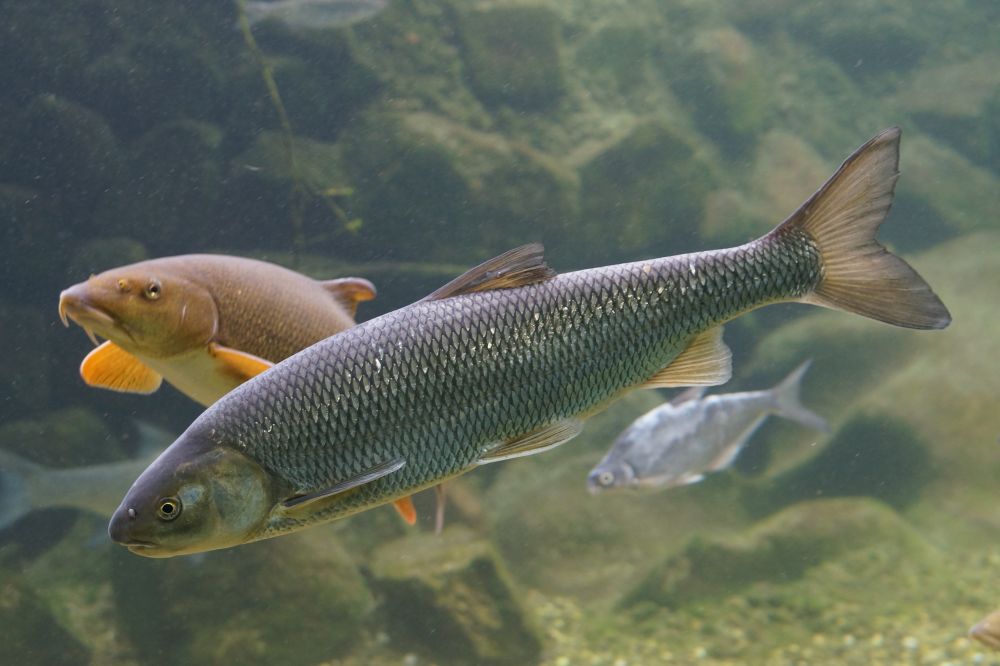
The Dace fish belongs to the Cyprinidae Family. The current size of the dace fish varies between 15 and 20 cm and weighs between 100 and 200 g. However, it can reach a maximum size of 40 cm for a weight of about 1 kg. The life span is usually 10 to 12 years, but it can reach 15 years. The breeding period is from March-April to May-June, depending on latitude. The female's fertility rate is 8,000 to 10,000 oocytes. The dace’s fishing season is open from June to March. This fish has a slender and streamlined body. The head is conical with a small and slightly split mouth, slightly inferior. The eyes are bordered with yellow. Fins are well developed. The caudal is indented, the dorsal fin is grey with 10-11 rays, located in the middle of the back. Pelvic bones are yellow with a concave posterior edge, anal and pectoral fins yellowish to orange. This species is suitable for rapid swimming in rough water. The scales are large (47 to 55 along the lateral line), silver-colored on the sides, greyer and greener dorsally, and white ventrally.
The Dace Fish is a famous fish you can catch in Docklands.The Bullhead fish
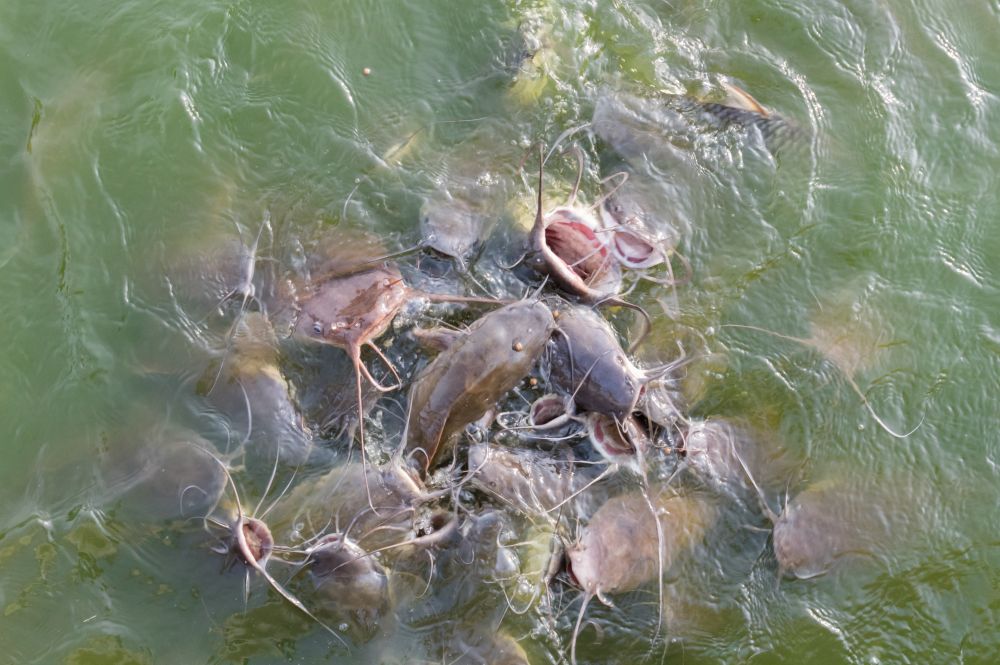
The Bullhead fish belongs to the Ictaluridae family. This species generally measures 15 to 20 cm, but can reach a maximum of 45 cm for a weight of 2 kg. It can live up to 6 years. It breeds in May-June and lays up to 5000 eggs. It can be fished all year. It is a scaleless fish with bare, viscous skin. Its naked body is elongated and has thousands of sensory cells (electro-receptor cells) that are a particular feature of the species. He has a large flattened head, a very wide mouth with large lips and 8 barbels, 6 of which hang, and 2 are located behind the nostrils. Its pectoral fins have sharp spines that are dangerous. Similarly, its first dorsal fin has a sharp sting. It also has a short fat fin (between the dorsal and caudal fins). Its brown back is almost black or greenish brown, its sides lighter, its belly yellowish white.
The Bullhead fish is a famous fish you can catch in Docklands.Bleak Fish
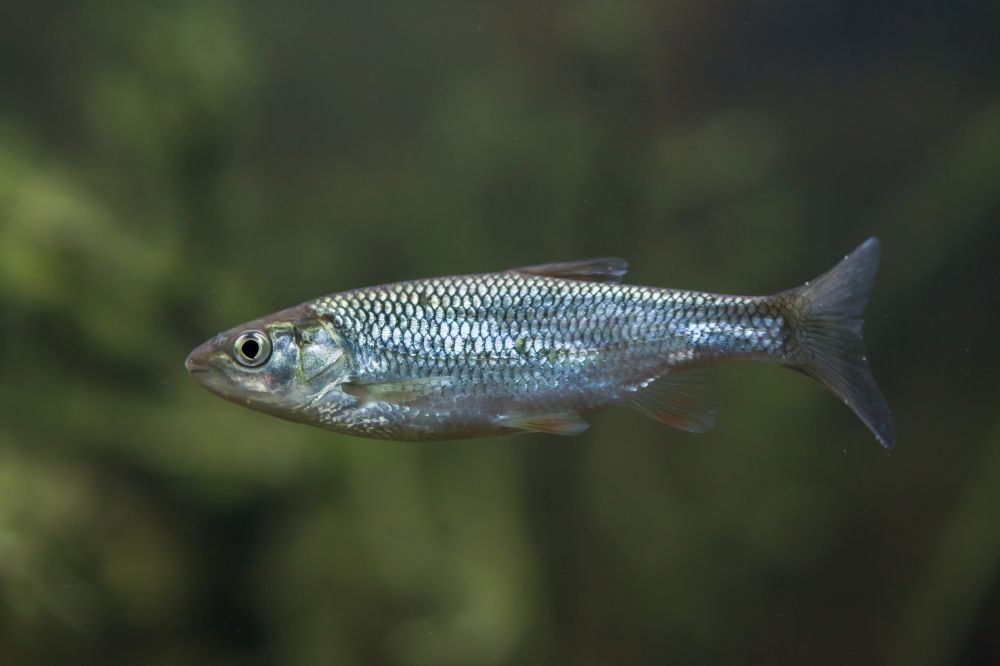
The Bleak fish is a Cyprinidae. In general, its average size is 10 to 15 cm and its weight is 15 to 50 g. However, some individuals can reach up to 60 g for a size of 25 cm. The bleak has a lifespan of 6-7 years. The spawning period is between April and August. It can lay up to 7000 spawns. You can fish bleak from June to September. This fish swims quite fast and offers a little resistance during the catch. The bleak is a fish with an elongated body that is very compressed laterally, allowing it to have a high velocity. The upper jaw is shorter than the lower jaw. The mouth of the bleak is oriented upwards (above), a typical character of fish that seek their food on the surface. The caudal fin is strongly indented and the caudal peduncle is thin. The dorsal fin is inserted behind the pelvic fins and has a shorter base than the dorsal fin. Its name refers to the bright white color of its scales, which gives the bleak a metallic sheen. Its back is darker greenish-blue, its sides are silvery white and its fins are pale grey. During the breeding season, nuptial tubers appear on the backs and sides of males and their fins become orange.
Bleak Fish is a famous fish you can catch in Docklands.Our fishing forecast of Docklands indicates the best time to go fishing in this city.
Our fishing forecast of Docklands indicates the best time to go fishing in this city.
Our fishing forecast of Docklands indicates the best time to go fishing in this city.
